COVID Whataboutism
Should government be taking harsher measures against smoking, car crashes, and the flu?
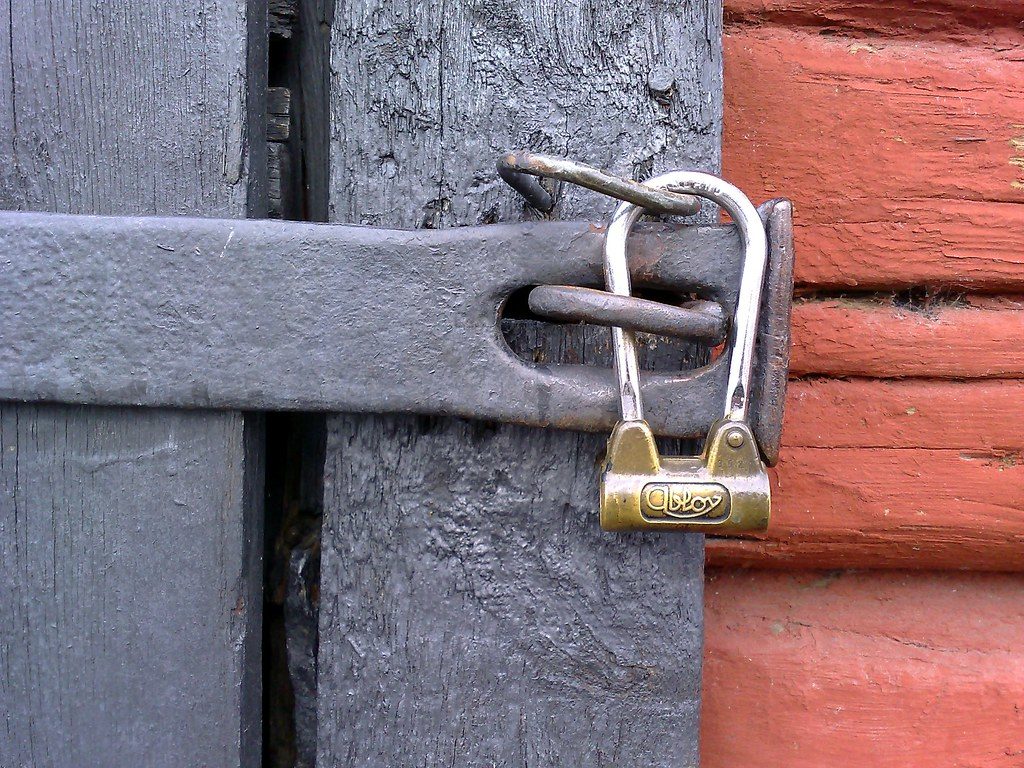
Going down a rabbit hole from the Related Posts feature this morning, I opened a couple of longstanding blogs that I used to visit regularly but almost never visit now. This has much more to do with changes in how I read—aggregators and algorithms guide me much more than blogrolls and RSS feeds nowadays—than the sites.
I’m reminded of why I started reading blogs in the first place. Case in point, a piece from Australian economist John Quiggin at Crooked Timber titled “Whataboutery and the pandemic” that turns a tiresome argument on its head:
Among the many consequences of the Covid-19 pandemic, and the measures taken to control it, there has been an epidemic of whataboutery. The starting point is the claim “we have locked down the entire economy to reduce the number of deaths from Covid-19, but we tolerate comparably large numbers of deaths from X”. Popular candidates for X include smoking, road crashes and influenza. In most, though not all, cases, the inference is that we should accept more deaths from the pandemic. Indeed, the majority of those using this argument are also opposed to any proposal to do more about the various examples of X they cite.
I’m going to take the contrapositive, and argue that the inconsistency pointed out here should be resolved by taking stronger action to reduce avoidable deaths from a wide range of causes, with the primary examples being road deaths and smoking.
While whataboutery on these topics typically suggests that society has made a decision to tolerate deaths from these causes, the reality is that there have been increasingly stringent measures to reduce them, adopted over many years, and that in both cases, the ultimate objective (explicit in some jurisdictions, implicit in others) is to reduce deaths to zero. In the case of roads, this aim is expressed in Vision Zero, adopted initially in Sweden and subsequently in a variety of other places. The UK government aims to end smoking by 2030, and most governments have interim targets which imply ultimate elimination of smoking.With or without explicit targets, the policy approach everywhere has been much the same. Restrictions aimed at reducing the risk in question have been introduced gradually over many years, with each new restriction providing a starting point for the next. In Australia’, for example, partial bans on tobacco advertising were introduced in the late 1980s. These were followed by complete ad bans, then by compulsory health warnings in small print, and finally by a requirement that cigarette packets should display gruesome photos of the consequences of smoking. At the same time, from an initial situation where smoking was universal, it has been progressively restricted in all public spaces, and where children may be exposed (as in private cars).
There is indeed an inconsistency here. If the restrictions in place now are justified in terms of a balance between health costs, damage to non-smokers and the restrictions on the rights of smokers, they would have been even more justifed 30 or 50 years ago, when the damage done by smoking was much greater. Coming back to Covid whataboutery, the inconsistency is not between accepting deaths from one source and not another, it’s between the urgent action necessitated by the pandemic and the slow pace adopted in other cases.
The slowness with which policies aimed at ending smoking, or road deaths, is easily explained. Governments have introduced them at a pace that avoids substantial political costs, and the risk of sustained non-compliance. In the case of smoking, for example, it is necessary to deal both with powerful and unscrupulous tobacco companies, using every available tool[1] to resist controls, and with a large addicted population, some (though not all) of whom have no desire to quit.
The success (so far) of lockdowns in controlling Covid, and their general acceptance outside the US, suggests that we should move more rapidly to eliminate public health risks, even where this involves coercive measures to stop people endangering others, and to prevent young people from endangering themselves. For example, partial bans on smoking in public places, or in the presence of children, should be made total. A more ambitious proposal of this kind would be to raise the smoking age, one year at a time, so that young people currently under the legal age would not be allowed to smoke until they were, say, 25 (hardly anyone begins smoking as a mature age adult, which is in itself an indication that it is not a choice open to a rational defence).
In the case of road deaths, the most obvious measures are lower speed limits in urban ares, and a greater willingness to take dangerous drivers off the road permanently. These measures will be adopted eventually – the only question is how many innocent lives will be lost before they are.
For reasons having almost entirely to do with personal predilections and almost nothing to do with logic, I’m more enthusiastic about more restrictions on smoking than on driving. But Quiggin makes a strong argument.
We Americans are more insistent on our “rights” than are our Australian cousins. But, as I’ve grown tired of explaining to Facebook friends angry about lockdowns, the notion that “My right to swing my fist ends where your nose begins” is a longstanding principle. I’m all for your right to take your chances with the virus; but you have no right to risk the lives of me and my family—or, indeed, your children or their grandparents. Economists like Quiggin talk about this as “negative externalities.”
It’s interesting that the Aussies started much later than we did in restricting tobacco advertising and insisting on labeling and yet are now far ahead of us. Having grown up constantly carsick because my parents smoked steadily any time we were driving, I’m actually shocked we allow people to smoke while others, especially children are in the car.
Taking away one’s right to drive is a harsh punishment, indeed, for anyone living outside a major city with public transportation. But we take this extreme measure for drunk driving—although not usually on the first offense. Should we take away the rights of the idiots who insist on texting or otherwise fiddling with their phone while driving? Or is there a better way to curtail that behavior, perhaps with some sort of jamming technology?
Interestingly, Quiggin doesn’t circle back to the third example from his introduction: influenza. Will Americans, having been conditioned to lockdowns during this pandemic, be more likely to implement them again for lesser ones? Or will this be a Never Again moment?
Despite unprecedented measures, we’ve lost nearly 100,000 in the last three months—most of them in just the last few weeks—from this pandemic in the United States. With no lockdowns (but with vaccines of varying effectiveness and distribution) we have far fewer flu deaths in even a bad year. And that’s comparing known COVID deaths to wildly inflated estimates of deaths from influenza.


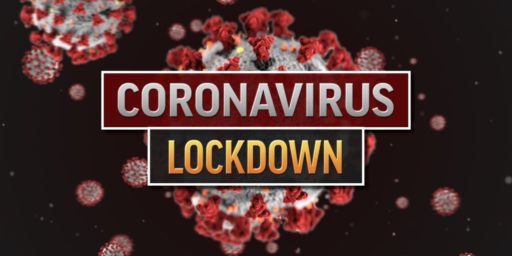
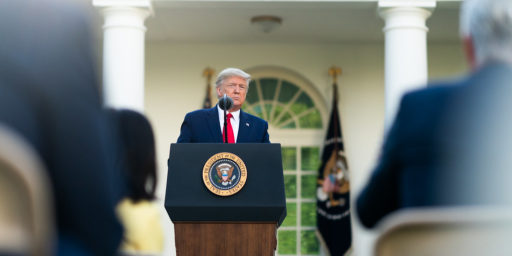
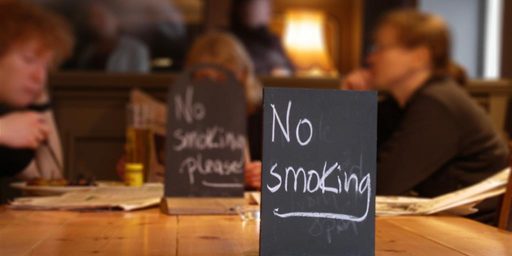
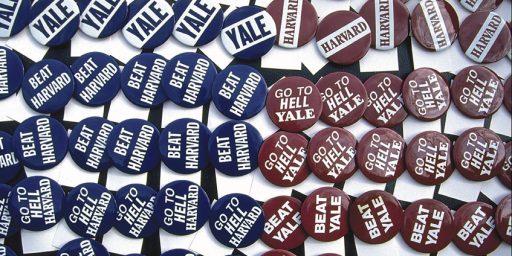
Speaking as an ex-smoker who spent the better part of 30 years trying to quit before finally succeeding 10 years ago (thank you Chantix!) who now has COPD (years of working construction in dusty environments probably has something to do with that too) and will take it up again in a NY second if I ever find out I have incurable cancer and only months to live, anything, and I do mean anything we can do to keep people from taking up that insidious habit is all to the good.
Just writing this has me jonesing for a cig.
The two whatabouts I run into most often are obesity and abortion.
Don’t mean to derail what could be a promising conversation, but I did want to say how much I prefer Quiggens’ “whataboutery” to our standard “whataboutism.” Maybe it’s just the Anglophile in me…
Great post, James.
From the Vision Zero safety project cited by Quiggin:
What an obvious statement of vision, yet remarkably bold to this American’s ears. The US fetishism about monetary value (value in consumerism, metric of a person’s value to society), probably has much, much more sway on our cost/benefit analysis than our feelings about life and health.
If there were no restrictions on smoking, no speed limits, no traffic laws, no traffic lights, no seatbelt laws, no safety regulations of cas, trucks, and aircraft, no restrictions on alcohol and other drugs, no campaigns to get flu shots, no laws against drunk driving, no sobriety checkpoints, etc, then there’d be a point to all this.
Not that there isn’t justification to further restrict or regulate tobacco, alcohols, driving, etc. But the pandemic isn’t the reason to do so.
To Republicans in particular, poverty probably reduces lifespans more than smoking, drinking, and traffic accidents.
It’s legitimate to stop people harming others – drunk driving, driving while texting, smoking in public spaces, spreading communicable diseases. I’d draw the line at stopping people from harming themselves – obesity, drinking or smoking at home.
But similar to what I’ve argued with #MeToo, we need to establish some levels and limits. For example, any time you drive anywhere, stone cold sober, there’s still a risk to others. If you barbecue steaks in your back yard you’re contributing to pollution and climate change. There would have to be some understanding of relative risks and harms and levels of acceptable risk would have to be set.
For those who are interested and may have missed it, I had a surprisingly interesting exchange a few weeks ago with DrDaveT over the Covid-19/car accident analogy.
Kylopod: I think there’s something more to all these arguments equating Covid-19 with seasonal flu (as Ron Paul did) or even more absurdly, to drownings and car accidents (as Dr. Phil did). The implicit assumption in these arguments is that all those “regular” bad things are so banal we barely have to pay any attention to them. I can practically see the shoulder-shrugging: “Eh, it’s just like the 60,000 dead from flu in 2017. What’s the big deal?” They usually are quick to add that a death is a tragic thing, but there’s a distinct overtone that these are problems we can safely ignore in our daily lives.
The problem with that framing is that it’s simply not accurate, even for those examples. Take car accidents. Put aside for the moment the obvious point that you can’t “catch” a car accident the way you can catch a virus. Car accidents are a real issue that our society has spent a great deal of time, money, and political capital confronting–through seat belts, air bags, speed limits, drunk driving laws, and more. (Many of those regulations are opposed by libertarians, but I digress.) It’s just that it’s an ongoing problem, rather than some new crisis that popped up last week, or one where there’s an endgame such as the development of a vaccine.
These analogies seem idiotic to us because they lump completely unlike things together. But what makes these arguments compelling to people within the right-wing bubble is that they attempt to turn Covid-19 into a non-crisis by pretending all those more familiar problems are themselves non-crises–which isn’t actually the case. They’re just not new, so we as a society have grown somewhat used to them and take for granted many of the measures we’ve enacted to deal with them. The right wants to make the Covid-19 crisis disappear not by claiming the virus itself doesn’t exist but by making it sound so normal it effectively disappears from public view–even though that shows a blinkered and inaccurate perception of all those “normal” problems.
DrDaveT: I think there really is a good analogy here. Car accidents are a beautiful example of where an equilibrium has been reached between public health and libertarian aversion to rules. There could be an endgame that all but eliminates the problem, by restricting driving rights and the capabilities of cars. As a society we aren’t willing to go there, because it would mean giving up privileges (I refuse to call them ‘freedoms’) that we value. Things like being able to drive a private car at lethal speeds pretty much anywhere, even if you suck at it.
The compromise we’ve arrived at is not the public health optimum. It’s also not independent of other decisions we’ve made, such as our transportation “infrastructure” that makes a car essentially necessary for most people to hold most jobs. And it changes over time as technology improves–airbags and crumple zones are less intrusive than seat belts, so we don’t mind them as much, and the additional cost to the consumer is invisible because you don’t have the option to buy the car without them.
The opposition by libertarians is not a digression–it’s why the equilibrium is where it is. Without that opposition, cars would go slower and would all have their bumpers at the same height and would only be driven by people who could pass regular recertification testing –and highway fatalities would be a small fraction of what they are today.
Another thing to keep in mind, in light of the above exchange, is that we’re talking about vastly different timespans. The process by which automobiles went from a neat invention to a practical ubiquity in modern life was extremely gradual, with the technology and laws filtering in as the situation progressed. If we’d gone from horseless carriages to 10,000+ deaths a year in one shot, the public reaction and the policy outcome would have been much different.
I was discussing climate change with a friend and invoked Pascal’s Wager. In essence, the arguments boil down to a preference between the two “bad” outcomes – live restricted and possibly waste your life with no change achieved or act unrestricted and lose the chance to prevent the end of the world. Deniers seems to adapt an inherent “well, nothing you can do about it” sentiment to their arguments and choose to risk environmental damnation than change their lifestyle. Liberty is preferable to the loss they think they’ll incur because the premise they hold is they’re going to lose something anyways (blah blah cycles blah blah it’s not man-made!)and they don’t think it’s going to be so bad (denial that sea levels are rising, etc). The analysis they’ve run, however, is flawed because the input used to determine it is flawed. Their Wager ends poorly for them because they do not re-evaluate it when new info comes to light.
Personally, I’m of the opinion we should be doing more for influenza. One of the reason COVID’s had such a devastating economic effect is the lockdown is 2 weeks plus due to incubation periods. A quarantine or lockdown for influenza locally would be far shorter and have much more immediate manifestations. That is, instead of waiting for weeks stewing on whether this was “worth it”, you’d get a few (ideally paid) days off if you weren’t and wouldn’t be out spreading it if you were. The payoff is far more immediate and the negative get mitigated more quickly. However, we’re still stuck in the mindset of “nothing you can do so pick liberty” that we’re not recalculating our Wager. As we’ve seen, the worse you let things get, the more liberty gets lost to balance things out and bring back a sense of normality. They think they’re choosing the “nothing will happen” option but in the end get stuck with “suffering”
@Michael Reynolds:
For me the borderline case was the big argument in the 70s about mandatory motorcycle helmet laws. I rode a Triumph Trophy at the time and never rode without a helmet and face shield. (There’s an awful lot of stuff in the air, dirt, bugs, and back then a lot of cigarette butts.) I had enough of a libertarian streak to have some sympathy for the “harming themselves” argument. On the other hand it seemed kind of stupid to not wear one, although we appreciated volunteering as an organ donor. I finally got to saying we wouldn’t be having this issue if people weren’t willfully stupid and as a society we protect children and the childlike.
I haven’t ridden in decades, but I get a chuckle out of what appears to be a culture thing. There are a lot of Harleys here in FL. The riders tend to no helmet or kind of marginal helmets. What the Brits used to call “pudding bowls”. Rice burner riders seem to go for serious helmets, and of late a lot of flak jackets.
With vehicles, most drivers have their own policies. It’s not a matter of liberty vs restriction enforced by the government. There’s a huge amount of self-awareness. That’s why when somebody buys a Ferrari or a Porsche nobody thinks this person needs to get somewhere really fast. No, a sports car is fun; it’s a luxury. It has nothing to do with freedom. Contrast that with guns which is all government vs the individual–guns are where an assault rifle that pops out a round every second is part of freedom.
The same self-awareness is occurring with Corona. Problem is that it’s destroying the economy. Where I live there’s not even a choice. Nobody in New York is going back to some restaurant where you have to move your neighbor’s table to slide into a seat. This restaurant’s density is probably 75% of every restaurant. It’s just not happening.
@Modulo Myself:
That is sadly true of restaurants in any size city. Commercial rents are–or were–so high that you need to squeeze as many tables in as you can in order to make anything resembling a profit.
@gVOR08: My view has been to allow people to ride without motorcycle helmets provided the following is in place:
the rider proves he has sufficient health insurance to cover the treatment of any accident,
provides a will and testament,
posts a bond sufficient to deal with the clean-up after the inevitable accident and the mental pain and suffering of whoever has to scrub their brains off the road,
and accepts that they will be euthanized if said motorcycle accident turns them into a vegetable.
@gVOR08:
When this was the issue du jour in Massachusetts I was living on the Cape pushing a vacuum cleaner with nothing to listen to, in those pre-everything days, but radio. IIRC correctly it was two guys named Jerry Williams and Gene Burns outraged over helmet laws. As long as bikers have health insurance it’s between them and Blue Cross. But, like you, I’m seeing guys on Kawasakis practically wearing suits of armor.
Related is the fact that Detroit fought like hell to stop every safety advance and now touts safety as a major selling point. Rather like their objections to efficiency they still struggle to catch up to Japanese and Korean car manufacturers that had the sense to see the future. Oldsmobile, Saturn and Mercury are dead, Cadillac and Lincoln might as well be, (is Pontiac still in business?). The entire US sedan market is toast, we’re down to pick-up trucks, while Toyota and Kia rule the roads.
@grumpy realist:
If only we could insist they not drive like assholes.
Many years ago I saw a fantastic motorcycle accident. I was stopped at a red light, at night, and some jackass on a rice burner came by at speed, hit a small traffic island and literally did a full Hollywood stuntman turn in mid-air. Sadly for him, and very much unlike stuntmen, he had not prepared for the landing. A nurse stopped behind me and I pulled his helmet off as his head was swelling like a pumpkin. Helmets are good; not being a fking moron is better.
@KM: If anybody thinks we’re going to make real sacrifices to deal with a problem like global warming that won’t have the most serious negative effects for decades, I invite them to look at the people and politicians demanding they have a Constitutional Right to go get a haircut during a pandemic.
@Teve:
What kills me (heh) about those clowns is that they often imagine themselves as tough guys, the descendants of the Pilgrim Fathers who spent 66 days crammed together with 135 people in a space about as big as a double-wide trailer, enjoying the misery of seasickness and awash in vomit. Or as hardy pioneers living in sod huts through Nebraska winters with their kids dying of cholera and their cattle dying of parasites, all while occasionally fighting off annoyed Native Americans.
OTOH, some of these MAGAts have had to endure weeks without getting their nails done, so you can see why they’d lose their minds.
@gVOR08: I think we should mandate the flak jackets but not the helmets for motorcyclists — protect the organ donation pipeline.
The conservative movement has rather successfully branded consumer protection as the nanny state, with implications stretching into this pandemic.
There’s a clear line from opposing seat belt laws, to Sarah Palin proudly drinking her 72oz Big Gulp, to people refusing to wear masks.
I assume the logical endpoint will be a very carefully reasoned op-Ed in the NYTimes about how Americans should be free to make their own trade offs on food safety and be able to buy products sometimes made with rancid meat, or that the modern workplace provides so little excitement that people should be able to choose to work in dangerous conditions.
@Michael Reynolds:
Off topic, but pertinent to your comment. Unless a motorcyclist has stopped breathing, you should never remove the riders helmet. Quite often when the force of the accident has the rider tumbling or impacts against the side of vehicle, there is a high chance of neck or spinal injuries, removing the helmet runs the risk of exacerbating the injuries. Let the ER do it, they’ll cut the helmet off as well as whatever clothes the rider had on.
At the time, you didn’t know this, so I’m not chastising you, but providing information. On the front and back of my helmets, there is a sticker that says, In Case of Accident, DO NOT Remove Helmet.
@OzarkHillbilly:..Just writing this has me jonesing for a cig.
@Sleeping Dog:
On that I deferred to the nurse. Her view was that his swelling head would make it impossible to get the helmet off later. I was just relieved to have her take over as I drove to a payphone (I’m so old) to call 911. I never did find out how the guy fared.
@Mister Bluster:
I smoked my first cigarette in the dried-out moat of the Vauban fort in Fouras, France at about age nine. This French girl and a friend of mine had brought Gauloises, but also candy cigarettes. I tried the cig, tried the candy, and made a fateful choice that has left me fighting weight my whole life, but without a tobacco addiction.
And a significant portion of those deaths are a direct consequence of “all-knowing” government officials backed by threats of government violence forcing COVID-19 positive patients into facilities with those most vulnerable to catching the virus and having a bad outcome from the disease. How many died because the government “experts” restricted by threat of government violence, the development of tests and use of treatments?
The regulatory state had to be pushed aside to get to where we are. Otherwise, we’d still be waiting for PPE and ventilator production to increase as the Agencies fretted over the coversheet on a submitted “TPS” report. We’ve been fortunate that when the career bureaucrats are slapped from their bureaucratic stupor, they’ve stepped up.
@gVOR08:
Willingness to wear gear definitely seems to go with the bikes here in “anything goes” New Hampshire. My husband rides a BMW bike, and he and all of his friends are in full gear, all the time (ATGATT – all the gear, all the time). Serious helmets (Arai, Schuberth), boots, jackets–everything. Local Harley riders: nothing except eye protection (required by law, helmets are not).
@Jen:
Speaking of NH and bikes, I understand that Laconia Motorcycle Week has been postponed from June to August this year.
@Michael Reynolds:
I thought you indulged in the occasional cigar.
@Michael Reynolds:..but without a tobacco addiction.
A wise choice indeed.
@Michael Reynolds:
Michael the ER cuts the helmet off with a device that resembles an oscillating saw. Back in the day, a good friend was an ER doc and he gave me a description of how it was done, subsequently I’ve done first aid training focused on motorcycle accidents and the training included an overview of ER procedures. Also watched a friend loaded on to an ambulance on a back board with all his gear on. He’s long healed and back riding.
Unfortunately the nurse didn’t know what she was talking about.
@CSK:
Occasional? I smoke ’em daily, but I smoke them properly, not like a cigarette smoker. They’ve never had any addictive power. I can fly or travel for weeks without them. The dependency for me is that they’ve become a work prop – they help me write.
@Sleeping Dog:
Interesting. I wonder if they had that tool back then? For all I knew the nurse worked in Ob/Gyn. I heard ‘I’m a nurse,’ thought, ‘and I’m a night manager at Sambo’s’ and decided I’d be most useful calling for competent people.
@CSK:
@Jen:
Tentative late August date, they also have one for October. I wouldn’t be surprised if it was cancelled for they year.
@Jen, your husband has good taste in bikes.
@Michael Reynolds: When I lived in France, 73-74, I smoked Gauloise Caporals. After I returned stateside, and took a job in North Jersey, I’d go over to Manhattan every weekend because I knew of a tobacco vendor who sold Gauloises – until it occurred to me he was charging a premium price for a low-quality pack of cancer sticks.
Funny how habits that kill have such pleasant memories.
My favorite nicotine of old: Benson and Hedges non-filtered, in the red tin box, purchased on Old Bond Street, London.
https://commons.wikimedia.org/wiki/File:Benson_and_Hedges_cigarette_tin.JPG
Haven’t smoked in 30 years, but clearly remember the experience.
@JKB: this is the second time at least that you’ve made this claim. Got any proof of it?
@JKB:
Those government officials being Trump, his appointees, and the GOP. I’m sure in your mind it’s all the DemonRat’s fault but it’s Trump and the GOP who are running things bub…
It’s almost kind of funny seeing JKB trying to blame “the government” (his favorite whipping boy) while trying really hard to NOT acknowledge “the government” is being run by the people he supports. If he actually acknowledged that Trump and the GOP fcked up the response he’d have to actually do some real thinking about his politics… Better to just blame “the government officials” than have any real introspection…
The GOP’s campaign message might as well be “Government is always the problem so elect us so we can prove it!”….
@Monala: Took me a while to put it together, but what he’s complaining about was Gov. Cuomo following federal guidelines from the Centers for Medicare and Medicaid services that stated that nursing homes were required to admit anyone they would normally admit. That would include covid-19 patients. Here’s a CNN piece on the issue.